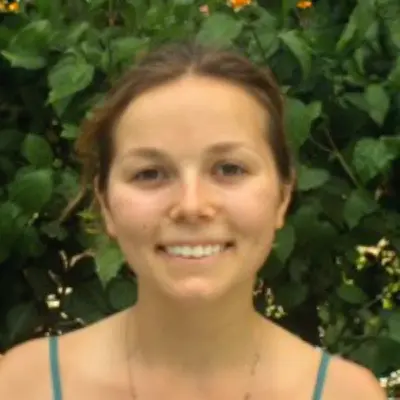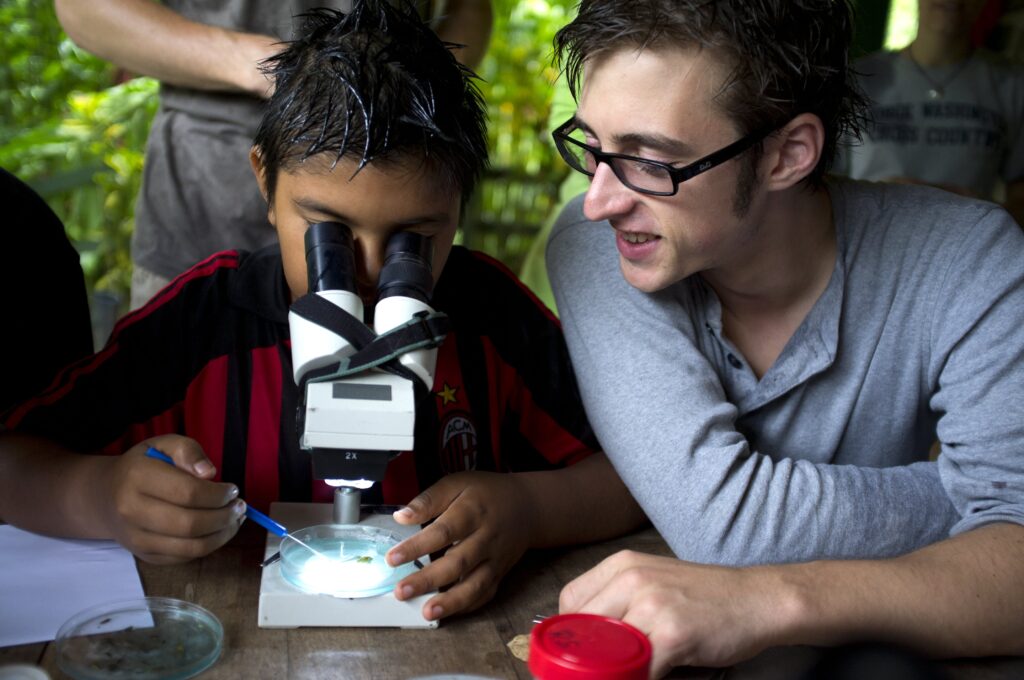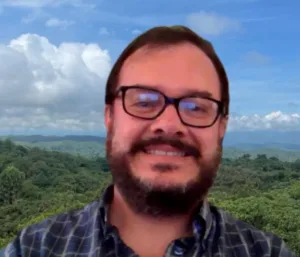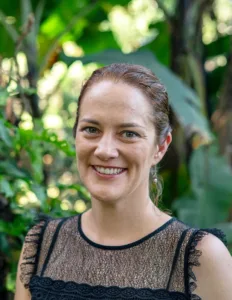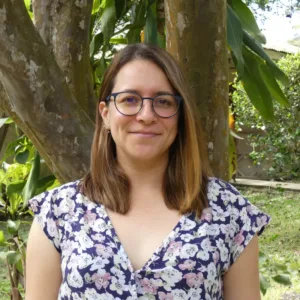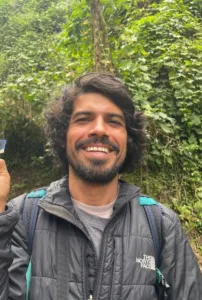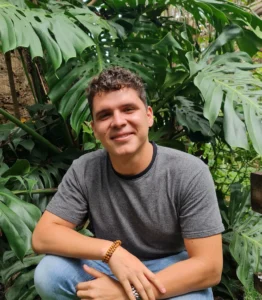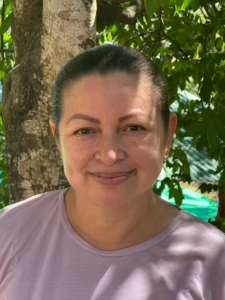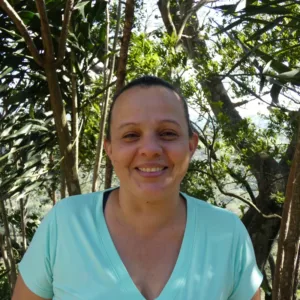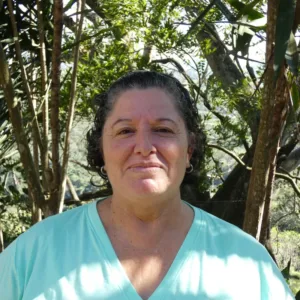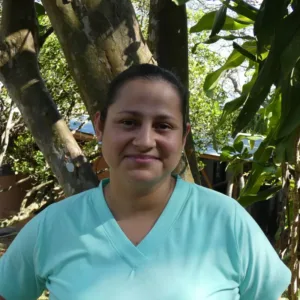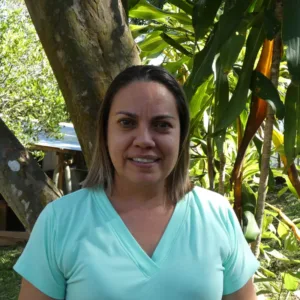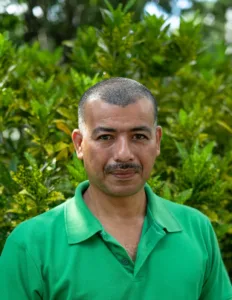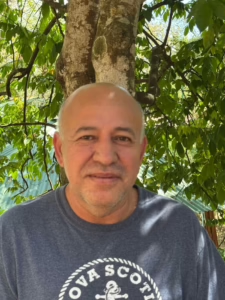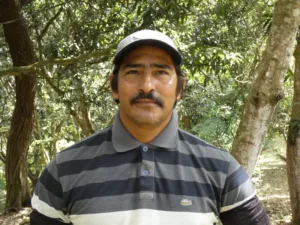Costa Rica
Study Abroad in Costa Rica
Have you ever wanted to live on a small tropical farm, walk among the waterfalls and wildlife of tropical cloud forests, wake to the sound of tropical birds, or taste Costa Rican coffee straight from a local coffee plantation?
Whether you’re an experienced traveler or looking for your first trip to another country, studying abroad is an important component of your college career. Living abroad gives you the opportunity to explore new places and learn about different cultures, gaining important global perspectives, discovering new things about yourself, and building lifelong friendships.
Our programs in Costa Rica take place across the country’s diverse patchwork of rugged rainforests, cloud forests, sandy beaches, and agricultural landscapes. Courses and fieldwork focus on key environmental issues faced here such as climate change, biodiversity conservation, tourism impacts, pollution and waste management, as well as the struggle between economic growth and the maintenance of the functionality of fragile ecosystems. Efforts to preserve the wild beauty of Costa Rica are recognized worldwide, but climate change and increased urban development bring new and unforeseen challenges impacting biodiversity and food security. Conservation leaders, farmers, land managers, and policymakers must work together using regenerative strategies to build ecological resilience and adapt to climate change impacts. Our research in Costa Rica contributes vital data to innovative efforts that balance conservation and development.
Programs
Ecological Resilience Studies
See Program Costs
Program Costs
- Tuition
- Room & Board
- Total
Biodiversity and Sustainable Food Systems
See Program Costs
Program Costs
- Tuition
- Room & Board
- Total
Environmental Justice from the Ground Up
See Program Costs
Program Costs
- Tuition
- Room & Board
- Total
Where You'll be Living
The Center overlooks the vibrant Central Valley, where green is the predominant color as far as the eye can see. The dorms and classrooms are nestled among orchards and gardens, while Center dog Hera keeps watch over it all. The friendly town of Atenas is a 10-minute cab ride away, offering restaurants, shops, parks, and cultural events.
- Dorm living with four-person bunkrooms
- Classroom, library, computer lab, and laundry room
- Open-air porch with hammocks and chairs
- Dining hall with scenic valley views, and on-site cooking staff
- Swimming pool, soccer field, basketball court, and pizza oven
- Outdoor classroom, greenhouses, nursery, and a vegetable garden
Know before you go
Click on each dropdown to explore details about life at this Center, and determine if it’s the right fit for you.
Program experience
Living Conditions & Daily Life
Students follow a structured schedule with classes and field activities typically from 7 AM to 5 PM, Monday through Friday. Evenings and most weekends are generally free for personal exploration, rest, or participation in optional program-organized activities.
Housing consists of shared dormitories with communal dining, where meals are prepared by program kitchen staff. A daily curfew is enforced throughout the program, including for students who choose to remain on campus during free weekends.
During the mid-semester break, the SFS Center is closed and students are required to travel independently. Remaining on campus during this period is not permitted.
Physical Readiness
Fieldwork includes short hikes (1–3 hours) through rainforests and other ecosystems such as cloud and dry forests, as well as visits to local farms and conservation projects. Occasional night hikes add a unique component, requiring increased focus and adaptability.
Terrain may include steep inclines and uneven paths, and weather conditions are often hot, humid, and rainy. Accessibility for students with mobility impairments or specific health conditions is limited.
Travel & Transitions
Students are based at an SFS field station but frequently travel to field sites around the region. Travel may include long bus rides on winding roads and occasional overnight stays. The program balances classroom learning with extensive fieldwork, requiring adaptability to changing environments and schedules.
Location & Culture
Program Location & Natural Environment
Set in a small tropical town, the program immerses students in a lush, biodiverse environment rich with sensory experiences. Students regularly encounter iguanas, scorpions, spiders, insects, and other tropical wildlife, particularly during fieldwork. While this setting enhances immersion, it also presents high levels of noise, humidity, and exposure to unfamiliar ecosystems.
Cultural & Linguistic Differences
Costa Rican culture is shaped by strong Catholic influences and traditional customs. Conservative dress is expected when engaging with the local community (covered shoulders, midriffs, longer shorts and dresses, etc.).
Spanish is the dominant language, though English is widely spoken in tourist areas. Students are not expected to arrive with Spanish proficiency, but language instruction is provided for beginner through advanced levels. Prior exposure to Spanish is helpful but not required.
health
Allergies & Dietary Preferences
Typical Costa Rican meals feature rice, beans, fruit, vegetables, and meat. Common dishes include gallo pinto and plantains. Students with dietary restrictions or food allergies must clearly communicate their needs in advance. Cross-contamination is possible, and meal options may be limited in rural areas.
There is a small kitchen available in the dormitory for occasional use, though preparing meals independently throughout the program is not feasible due to scheduling demands.
Cross-contamination accommodations for advanced allergies abroad may not be feasible. Students with severe or life-threatening allergies and/or strict dietary requirements must consult with medical professionals and [email protected] before applying.
Required Vaccinations & Health Care
SFS does not mandate any specific vaccinations. For additional recommendations, consultation with a travel medicine professional is strongly advised before departure.
Basic medical facilities are located about 10 minutes from the SFS Center, while advanced care is 45–90 minutes away. At times, students may be 2+ hours from medical care while on fieldwork.
Routine in-person medical and counseling services are not feasible during the program. Students must bring a full supply of any prescription medications, including psychotropic medications, for the entire duration of the program, as local refills may not be available without prior arrangements.
PRogram Costs
Study abroad is an investment in yourself – you’ll return home with new experiences, skills, knowledge, and friendships that will stay with you for the rest of your life. SFS program costs cover a variety of expenses, including:
- Pre-program advising and on-site orientation
- Tuition and research fees
- Housing at the field station and on excursions
- Daily meals and snacks
- Airport transfers (for arrival/departure)
- Field excursions and cultural activities
- Student success and wellness team on site
- 24/7 mental health and well-being support
- Emergency evacuation and repatriation insurance
- Official transcript processing
Financial Aid
We know cost can be one of the biggest barriers to studying abroad. At SFS, we’re committed to making our programs accessible to students which is why we award a generous amount in need-based financial aid each year. Our Admissions Team has worked with thousands of students and are here to answer your questions about the SFS aid process, aid available through your home school, and funding from external sources.
SFS Financial Aid: Need-based aid packages typically consist of a combination of scholarships, grants, and zero- and low-interest loans. SFS matches Federal Pell Grant funding for students applying to an SFS semester program.
Home School Aid: Be sure to ask your home school study abroad office or financial aid office what financial aid resources might be available to support your study abroad experience.
External Funding Opportunities: Organizations such as the Fund for Education Abroad or the Gilman International Scholarship Program award scholarships to students going abroad. These can be a great opportunity to reduce the cost of your program even more.
Research
Research at the Center for Ecological Resilience Studies (CERES) focuses on the connections between conservation and development. Costa Rica’s lush ecosystems, conservation areas and national parks, communities, and farms provide a varied landscape for research on the impacts of climate change, globalization, tourism, and land use change. Our research provides valuable data for community members, NGOs, and government officials as they seek to further the sustainable development goals of Costa Rica.
Our research focuses primarily on the following themes:
- Impacts of climate change on tropical ecosystems
- Agriculture and conservation
- Combining environmental services and biodiversity conservation
- Urban and agricultural expansion and water management
- Food security
- Vertebrate ecology
- Sustainable ecotourism
- Ecological Resilience
Community
SFS is an active part of the Atenas community, where we have been based since the early 90s.
We have built long-term, collaborative relationships in the communities around the Center, and developed our research plans based on the environmental issues they and the surrounding ecosystems face. Throughout the program, students help maintain a local recycling program, teach environmental education to local students, and participate in waterways management projects.
At the end of each semester program, we share our research findings with the community, local NGOs, and the Costa Rican government.
